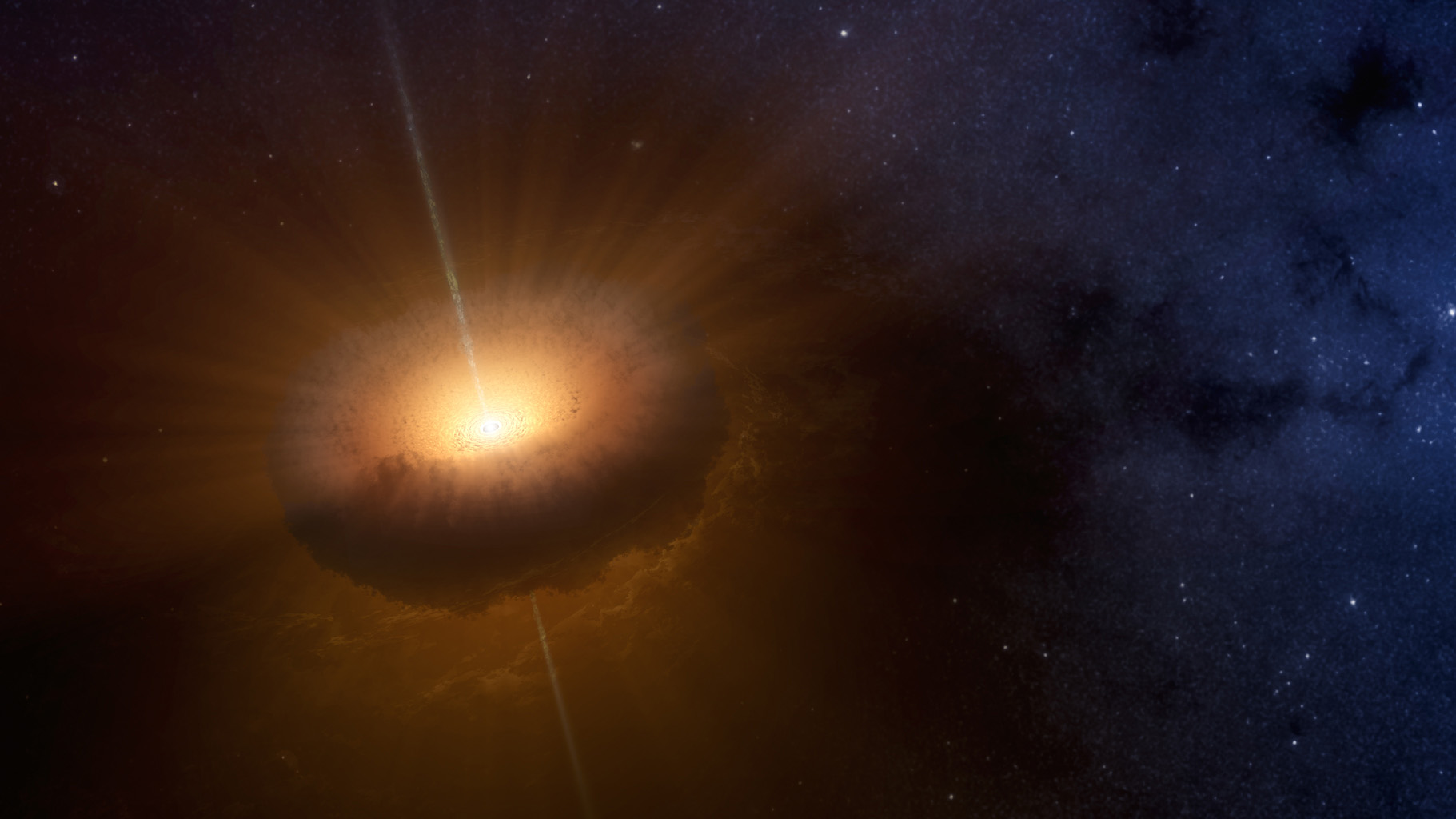
Astronomers have performed an accurate census of the number of galaxies in the universe. There are at least 10 times as many galaxies in the observable universe as previously thought.

In December, NASA put out a call for adventurers interested in interplanetary exploration. A vast pool of applications will be cut to 120 finalists, who will vie to become part of NASA’s next class of eight to 12 astronauts.

Scientists have found the first gamma-ray binary in another galaxy and the most luminous one ever seen.

A new study confirms some ideas about where X-rays come from, shedding light on our solar neighborhood's early history. But it also reveals a new mystery -- an entire group of X-rays that don't come from any known source.

NASA's Juno spacecraft has sent back the first-ever images of Jupiter's north pole, taken during the spacecraft's first flyby of the planet with its instruments switched on.

OSIRIS-REx will bring back specimens for researchers to interrogate inside high-tech labs around the world, seeking clues about the origin of life, water and the planets themselves. The results could be skewed by an unexpected microbe or spore from planet Earth.

Another day, another dire warning about the global climate emergency. NASA's top climate scientist announced Tuesday that the Earth is warming at a pace not seen in at least the past 1,000 years.

One year ago, six volunteers entered a 36-by-20 foot dome, located near a barren volcano in Hawaii, to simulate what living conditions would be like on Mars. Today they re-emerged from their year-long isolation.

Two NASA astronauts successfully installed a new parking spot at the International Space Station today, marking a key step toward accommodating new commercial space taxis that arrive at the orbiting lab.

Saturn's exotic moon Titan, with its thick atmosphere and large, methane lakes, continues to beguile planetary scientists. Now, using data collected by an altimeter aboard NASA's Cassini spacecraft, scientists have found liquid methane flowing through deep gorges on the moon's surface.

Scientists are preparing to unveil a new planet in our galactic neighborhood which is "believed to be Earth-like" and orbits its star at a distance that could favor life. The exoplanet orbits a well-investigated star called Proxima Centauri, part of the Alpha Centauri star system.

Mineral veins found in Mars's Gale Crater were formed by the evaporation of ancient Martian lakes, a new study has shown.

Researchers list exoplanets with the most potential to have liquid water, or even life. An international team of researchers has pinpointed which of the more than 4,000 exoplanets discovered by NASA

In 2009 astronomers detected an unusual object, named CX330, as a source of X-rays as it was surveying the center of the Milky Way galaxy but they had not idea what it was. Today, astronomers have a better idea to what this strange object is.

New data from NASA's Nuclear Spectroscopic Telescope Array, or NuSTAR, has, for the first time, begun to pinpoint large numbers of the black holes sending out the high-energy X-rays.